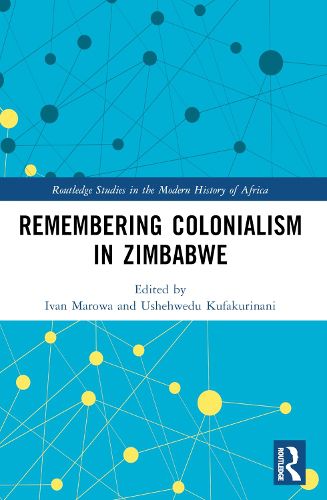Readings Newsletter
Become a Readings Member to make your shopping experience even easier.
Sign in or sign up for free!
You’re not far away from qualifying for FREE standard shipping within Australia
You’ve qualified for FREE standard shipping within Australia
The cart is loading…






This book examines the various ways in which colonialism in Zimbabwe is remembered, looking both at how people analyse, perceive, and interpret the past, and how they rewrite that past, elevating some players and their historical agency. Inspired by the ongoing movement on decoloniality, this book examines the ways in which generations of today question and challenge colonialism's legacies and their role in Zimbabwe's collective memories and history. The book analyses the memorialising of both Mugabe and Mnangagwa in their speeches and during the political transition, before going on to trace the continuing impact of colonialism across areas as diverse as dress code, place-naming, agriculture, religion, gender, and in marginalised communities such as the BaKalanga. Drawing on the expertise of Zimbabwean scholars, this book will appeal to researchers of decolonisation, and of African history and memory.
$9.00 standard shipping within Australia
FREE standard shipping within Australia for orders over $100.00
Express & International shipping calculated at checkout
This book examines the various ways in which colonialism in Zimbabwe is remembered, looking both at how people analyse, perceive, and interpret the past, and how they rewrite that past, elevating some players and their historical agency. Inspired by the ongoing movement on decoloniality, this book examines the ways in which generations of today question and challenge colonialism's legacies and their role in Zimbabwe's collective memories and history. The book analyses the memorialising of both Mugabe and Mnangagwa in their speeches and during the political transition, before going on to trace the continuing impact of colonialism across areas as diverse as dress code, place-naming, agriculture, religion, gender, and in marginalised communities such as the BaKalanga. Drawing on the expertise of Zimbabwean scholars, this book will appeal to researchers of decolonisation, and of African history and memory.